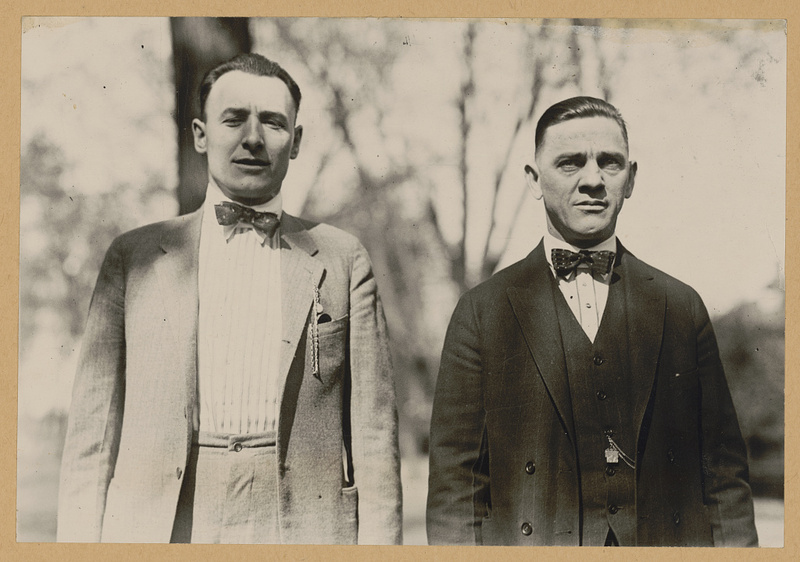Miners In the Aftermath
The Dust Settles
In the aftermath of the battle, organizers like Bill Blizzard were tried for charges such as accessory to murder (Lee, 1969). They were only three amongst a grand total of nearly 500 men who were tried for similar charges; of this number, 400 are specifically charged with murder (Logan District, 1921, p. 16). Many of the murder indictments that were returned came from the Red Man Act (Logan District, 1921, p. 16).
Fred Mooney and Frank Keeney are two examples of people who were involved in striking that were charged with treason.

Fred Mooney (left), C.F. Keeney (right)
Mine leaders charged with treason When the trials of 120 officers and members of the United Mine Workers of America charged with treason growing out of the Logan march last fall opened in Charlestown, West Virginia yesterday among the 23 who were arraigned in court were C.F. Keeney, president of District Number 17, United Mine Workers, and Fred Mooney, secretary of District Number 17
Continued Abuses
Additional efforts to gain better conditions and to change the status quo in West Virginia mining towns continued to meet resistance in a coal-dominated state.
One such example occurred in State vs. Bittner, when miners petitioning the Circuit Court of Monongalia County to enjoin one of the coal companies from operating its mines in violation of union agreements found that injunctions "were for coal companies only." The judge overseeing the case, who had received coal royalties annually, sometimes totaling up to $60,000, decided that the case was too technical to be understood. (Lee, 1969, p. 148)
Blair Mountain: A forgotten Scuffle, or an Everlasting Legacy?
However, the influence of the Battle of Blair Mountain and the WV Coal Wars had a lasting impact on unionization and labor laws for years to come.
After Blair Mountain and his acquittal, Blizzard continued to support unionizing through government, becoming an unpaid lobbyist in the West Virginia state legislature. Once unionizing was made legal, Blizzard and other key players, such as Charley Payne and Ed Holstein, served in the WV union for decades (Harris 2011).
Because of Blair Mountain and its leaders continuing to support the unions, workers were able to receive things like pensions, health care, safety regulations and more, all things that seem commonplace and guaranteed now. Without Blair Mountain, win or lose, things like retirement, insurance, and the normal 40-hour work week would not have been possible.